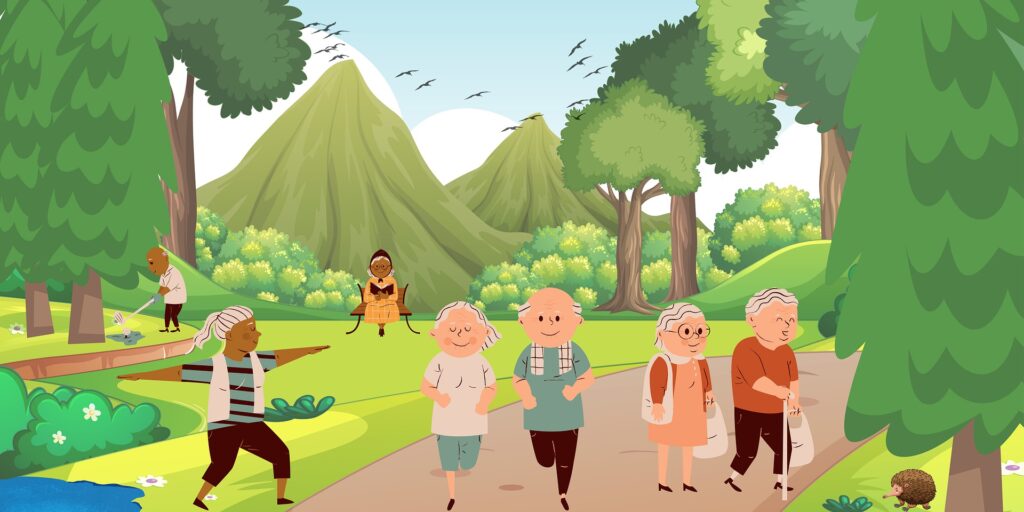Wellness is important at every age, especially for those with MS. While our needs naturally change over time, self-care becomes increasingly important as we enter the later stages of life. Aging is uniquely personal. While some may still have the mental and physical capabilities that have kept them independent, others may need additional support to complete daily tasks. Understanding our needs and having access to supportive services and devices can make a difference in our quality of life.
Mobility and independence go hand in hand. Having the necessary equipment may allow an individual to remain living independently for as long as possible. As we age, our balance and physical strength decline. While exercise and physical activity are typically recommended to stay healthy, falls may be a frequent concern. Mobility devices and assistive technology may assist with daily tasks, but sometimes specialized equipment may be needed to fully meet an individual’s needs. While MSAA’s Equipment Distribution Program offers equipment such as walkers, canes, and grab bars, some people may require additional specialized devices to fully meet their needs, such as Hoyer lifts and hospital beds. Occupational therapy and physical therapy may help evaluate our needs and help us adapt.
Daily living activities may be especially challenging for those who may be experiencing cognitive decline or don’t have care partners for assistance. Homecare may offer in-home services to help with these tasks, such as light housekeeping, laundry, and meal preparation. A limited support system may also impact socializing. The benefits of socializing are undeniable. It keeps our minds active and is important for cognitive functioning and our emotional well-being. Adult daycare services may be a great resource for those who would like additional social activities outside their home. These services are provided to older adults in a community setting and typically offer a range of events and activities like trivia games, painting, or group conversations.
Planning becomes increasingly important when taking into consideration the specific needs of someone with MS. It can be overwhelming to deal with medical expenses, housing modifications, transportation, and other unexpected costs. Navigating health insurance and Social Security benefits can be complicated, and becoming familiar with government benefits and local and national organizations may ease some of the stress.
For those who would like to explore their local resources, consider the following:
- Center for Independent Living: For those looking for additional support and resources, your local Center for Independent Living may be able to offer a variety of services to promote the independence of people with disabilities and those who are older. Services may include information and referral, independent living skills, individual and systemic advocacy, and equipment loan closets. The ILRU Directory of Centers for Independent Living (CILs) and Associations can be found by visiting https://www.ilru.org/projects/cil-net/cil-center-and-association-directory.
- Eldercare Locator: The Eldercare Locator is a public service of the U.S. Administration on Aging that connects you to services for older adults and their families. Their specialists can assist with information about support services, housing, elder rights, insurance and benefits, health, and transportation. The Eldercare Locator can be accessed by visiting https://eldercare.acl.gov/Public/index.aspx.


